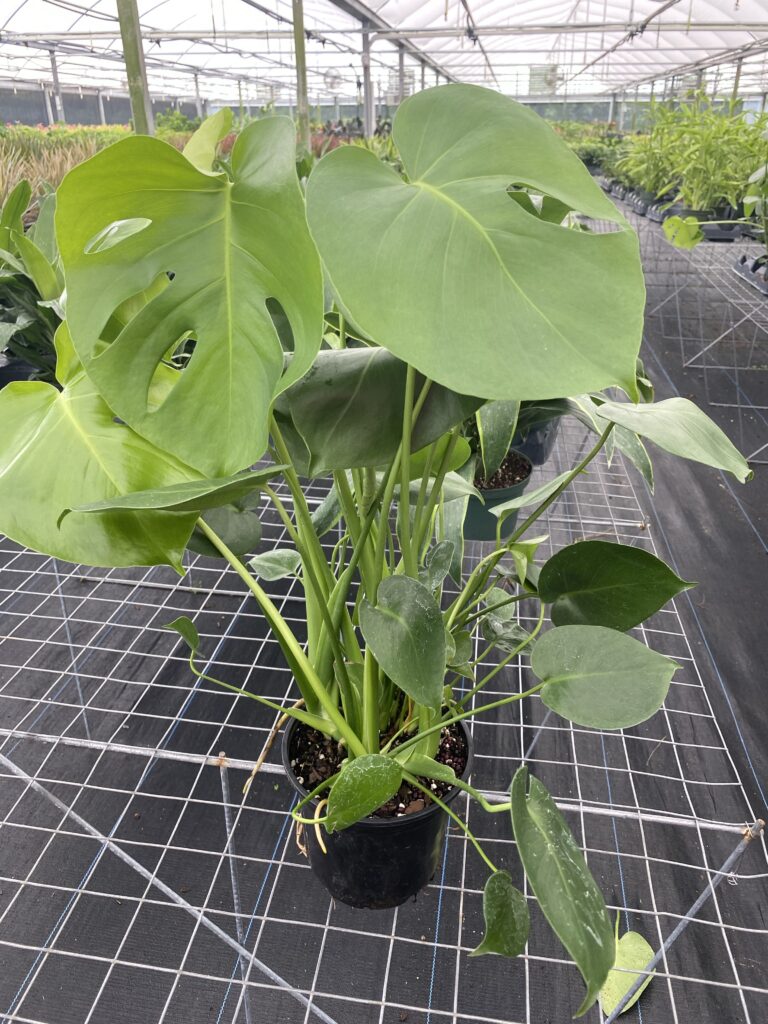
Monstera deliciosa, often called the Swiss Cheese Plant, is a popular houseplant known for its striking, tropical appearance and unique foliage. We offer these in 4”, 6”, 8”, 10”, and 14”.
Here’s what you need to know about Monstera deliciosa.
Appearance
Leaves: Large, glossy, and heart-shaped with distinctive splits and holes that give the plant its “Swiss cheese” look. As the plant matures, the leaves become more deeply lobed.
Growth: Can grow up to 10 feet indoors with proper care, spreading out with aerial roots and climbing habits.
Care Tips
Light: Thrives in bright, indirect light. It can tolerate lower light but may grow slower and produce fewer fenestrations (holes in the leaves). Avoid direct sunlight, which can scorch the leaves.
Watering: Keep the soil consistently moist but not soggy. Water when the top 1-2 inches of soil feel dry. Overwatering can lead to root rot, so ensure the pot has good drainage. Reduce watering in winter.
Soil: Use a well-draining potting mix. A mix designed for houseplants or one with added perlite or orchid bark works well.
Temperature: Prefers temperatures between 65-85°F. It should be kept away from cold drafts and temperatures below 50°F.
Humidity: Enjoys higher humidity. Regular misting, a humidity tray, or a humidifier can help, especially in dry indoor conditions.
Fertilizing: Feed with a balanced, water-soluble fertilizer every 1-2 months during the growing season (spring and summer). Cut back on fertilizing in fall and winter.
Repotting: Repot every 1-2 years or when the plant becomes root-bound. Spring is the best time for repotting. Choose a pot that is slightly larger than the current one.
Pruning: Prune to remove any dead or damaged leaves and to control the plant’s size. Regular pruning can also help encourage new growth and a bushier appearance.
Pests and Problems: Watch for pests like spider mites, mealybugs, and scale. Also, monitor for signs of overwatering, such as yellowing leaves and root rot. Proper drainage and watering practices are key to preventing these issues.
Additional Tips
Support: Provide a moss pole or trellis for support as the plant grows, allowing it to climb and develop its large, mature leaves.
Toxicity: Monstera deliciosa is mildly toxic if ingested, causing irritation and gastrointestinal discomfort. Keep out of reach of pets and young children.
If you have any questions, or are interested in purchasing, feel free to come by the nursery or give us a call at (352)735-8350. Our inventory is also available to see online.
